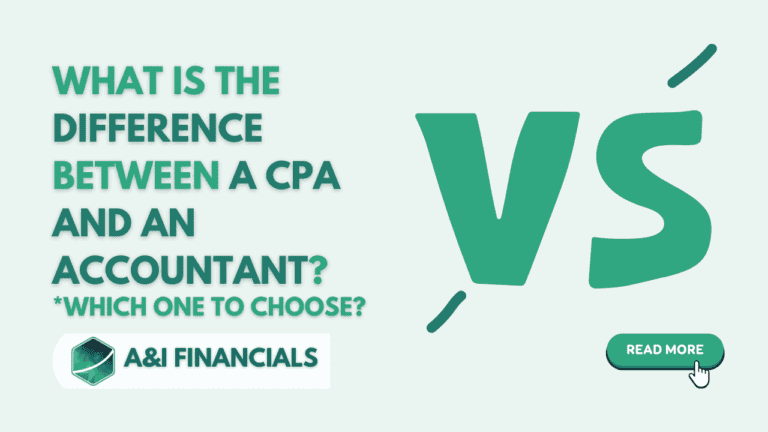Do Accountants Prepare the Financial Reports Being Neutral?
Neutrality in financial reporting is a critical element in the field of accounting. But do accountants prepare the financial reports being neutral? Absolutely. Neutrality, or objectivity, ensures that financial statements are free from bias, providing a true and fair view of a company’s financial performance. This article will delve into the nuances of neutrality in financial reporting, exploring how accountants achieve this, the importance of accounting standards, and the impact on various stakeholders.
The Essence of Neutrality in Financial Reporting
Neutrality in financial reporting means that accountants must be unbiased and impartial when preparing financial statements. This objectivity is crucial because stakeholders—like investors, creditors, and regulators—rely on these reports to make informed decisions.
Imagine a scenario where financial reports are skewed to present a company in a better light. Investors might pour money into a seemingly thriving business only to face losses when the reality of its financial health surfaces. Therefore, maintaining neutrality is not just an ethical obligation but a necessity for financial transparency and trust.
How Accountants Ensure Neutrality
Accountants adhere to various standards and principles to maintain neutrality in financial reporting. Two major frameworks govern these practices: Generally Accepted Accounting Principles (GAAP) and International Financial Reporting Standards (IFRS).
Generally Accepted Accounting Principles (GAAP)
GAAP is a set of accounting standards predominantly used in the United States. It provides guidelines on how financial statements should be prepared and presented. By following GAAP, accountants ensure consistency, comparability, and neutrality in financial reporting.
International Financial Reporting Standards (IFRS)
IFRS, used in many countries around the globe, offers a comprehensive framework for financial reporting. It aims to make financial statements understandable, comparable, and transparent across different jurisdictions.
Both GAAP and IFRS emphasize the importance of neutrality, requiring accountants to present information objectively and without bias.
Key Components of Financial Statements
To understand how accountants maintain neutrality, it’s essential to grasp the core components of financial statements. These include the Balance Sheet, Income Statement, Cash Flow Statement, and Statement of Retained Earnings.
Balance Sheet
The Balance Sheet provides a snapshot of a company’s financial position at a specific point in time. It lists assets, liabilities, and shareholders’ equity, reflecting what the company owns and owes. Accountants ensure that the figures presented are accurate and unbiased, adhering to accounting standards and principles.
Income Statement
The Income Statement shows a company’s financial performance over a period, detailing revenues, expenses, and profits or losses. Neutrality in this context means accurately recording all financial transactions, without exaggeration or understatement.
Cash Flow Statement
The Cash Flow Statement outlines the inflows and outflows of cash, categorizing them into operating, investing, and financing activities. Neutrality ensures that these cash movements are reported correctly, providing a true picture of the company’s liquidity.
Statement of Retained Earnings
This statement shows changes in retained earnings over a period, including profits retained in the business and dividends paid out. Neutrality ensures that these figures are reported accurately, reflecting the true financial health of the company.
The Role of Auditors in Ensuring Neutrality
Auditor independence is crucial for maintaining neutrality in financial reporting. Independent auditors review financial statements to ensure they are free from bias and comply with accounting standards. They provide an objective assessment, enhancing the credibility and reliability of financial reports.
Internal Controls and Regulatory Compliance
Internal controls and regulatory compliance also play a significant role in ensuring neutrality. Internal controls are processes implemented by a company to ensure the accuracy and reliability of financial reporting. Regulatory compliance ensures that the company adheres to laws and regulations, further supporting neutrality.
The Importance of Financial Transparency
Financial transparency is vital for building trust with stakeholders. When financial reports are neutral and transparent, stakeholders can make informed decisions, enhancing the company’s reputation and credibility.
Impact on Stakeholders
Neutral financial reporting impacts various stakeholders differently:
- Investors rely on neutral reports to assess the company’s financial health and make investment decisions.
- Creditors use these reports to evaluate creditworthiness and lending risks.
- Regulators ensure that companies comply with laws and regulations, protecting the interests of the public and maintaining market stability.
Accounting Ethics and Professional Judgment
Accountants must adhere to ethical standards and exercise professional judgment in their work. This includes being objective, honest, and impartial, ensuring that financial reports are neutral and reliable.
Accounting Standards Board
Organizations like the Financial Accounting Standards Board (FASB) and the International Accounting Standards Board (IASB) play a pivotal role in developing and maintaining accounting standards. These boards ensure that the standards promote neutrality, consistency, and transparency in financial reporting.
Challenges in Maintaining Neutrality
Maintaining neutrality in financial reporting is not without challenges. Accountants often face pressure from management to present a more favorable financial picture. However, adhering to accounting standards and ethical guidelines helps mitigate these challenges.
Balancing Objectivity and Professional Judgment
While objectivity is crucial, accountants must also exercise professional judgment. This balance ensures that financial reports are both neutral and reflective of the company’s true financial position.
Do Accountants of A&I Fianancials Prepare the Financial Reports Being Neutral?
At A&I Financials, our accountants uphold the highest standards of neutrality and objectivity when preparing financial reports. Adhering to both Generally Accepted Accounting Principles (GAAP) and International Financial Reporting Standards (IFRS), our team ensures that every financial statement is free from bias, providing a true and fair view of your company’s financial health. Our commitment to ethical practices and regulatory compliance guarantees that stakeholders can trust the accuracy and transparency of our financial reports, making informed decisions with confidence.
Practical Examples of Neutrality in Action
Let’s consider a few practical examples to illustrate neutrality in financial reporting:
Example 1: Revenue Recognition
An accountant must decide when to recognize revenue from a sale. Adhering to accounting standards, they should recognize revenue when it’s earned and realizable, not before. This ensures that the financial statements reflect true performance without bias.
Example 2: Asset Valuation
When valuing assets, accountants must use fair value measurements, reflecting the current market conditions. This approach prevents over- or under-stating asset values, maintaining neutrality and transparency.
Example 3: Expense Reporting
Accurate and unbiased reporting of expenses ensures that the company’s profitability is not overstated. Accountants must record all expenses incurred, regardless of their impact on the financial statements.
The Future of Neutrality in Financial Reporting
As the accounting profession evolves, the focus on neutrality in financial reporting remains steadfast. Emerging technologies, such as artificial intelligence and blockchain, offer new tools to enhance accuracy and transparency. However, the core principles of neutrality and objectivity will continue to underpin financial reporting practices.
Role of Technology
Technological advancements provide accountants with better tools to ensure neutrality. For example, automated systems can reduce human error and bias in financial reporting, enhancing accuracy and reliability.
Continuous Professional Development
Accountants must engage in continuous professional development to stay updated with the latest standards, technologies, and best practices. This commitment ensures that they can effectively maintain neutrality in financial reporting.
Conclusion
In conclusion, do accountants prepare the financial reports being neutral? Yes, they do. Neutrality in financial reporting is a fundamental principle that ensures the accuracy, reliability, and transparency of financial statements. By adhering to accounting standards like GAAP and IFRS, implementing internal controls, and maintaining ethical standards, accountants provide unbiased financial reports that stakeholders can trust. As the profession continues to evolve, the commitment to neutrality and objectivity remains paramount, safeguarding the integrity of financial reporting.
Through practical examples and a comprehensive understanding of the various elements involved, we’ve explored how neutrality is achieved and maintained. This commitment to impartiality is not just a professional obligation but a cornerstone of trust and transparency in the financial world.
FAQs
Neutrality in financial reporting means presenting financial information impartially, without bias, to provide a true and fair view of a company’s financial health.
Neutrality ensures that financial reports are reliable and trustworthy, allowing stakeholders to make informed decisions based on accurate information.
Accountants adhere to accounting standards like GAAP and IFRS, follow ethical guidelines, and implement internal controls to maintain neutrality in financial reports.
Failing to maintain neutrality can lead to misleading financial reports, loss of stakeholder trust, and potential legal and regulatory consequences.
Yes, accountants at A&I Financials strictly adhere to GAAP and IFRS standards, ensuring that all financial reports are prepared with complete neutrality and objectivity.







